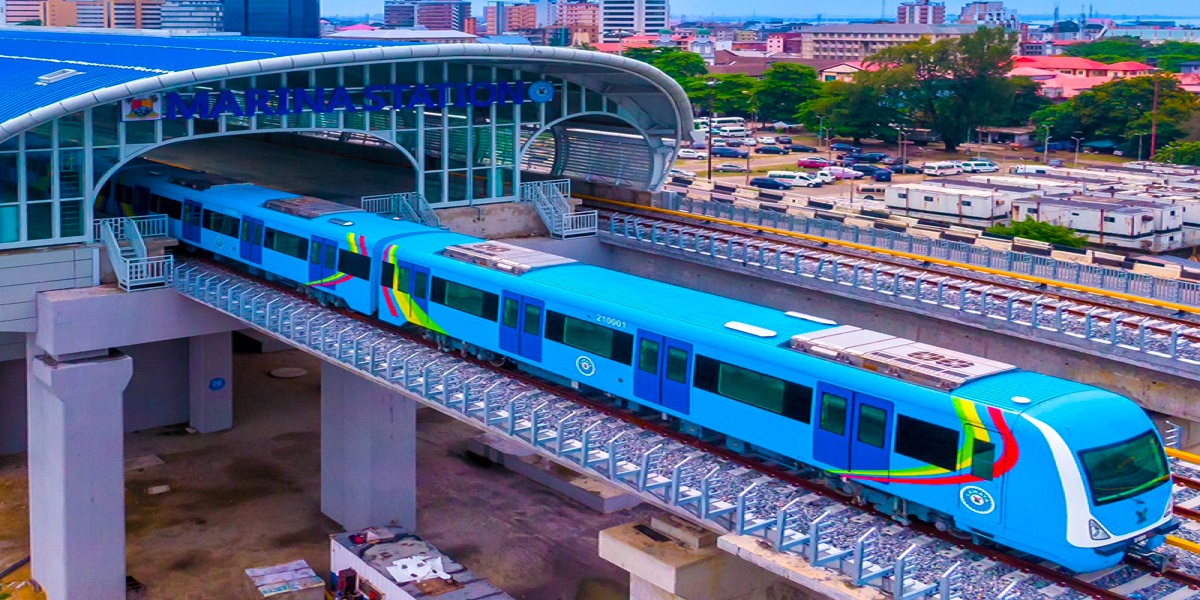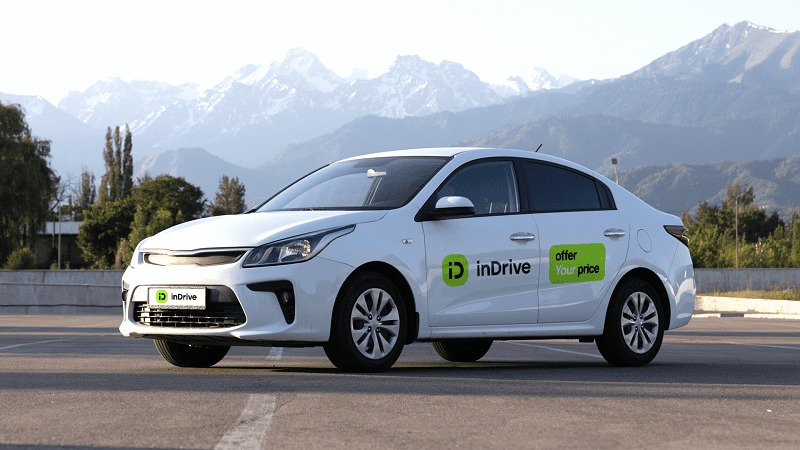Auto
Future of Transportation is Electric Not Fuel, is Africa Ready?

By Timi Olubiyi, PhD
The year 2025 comes with a lot of hope and many aspirations, one of such is the increased benefits and possibilities around electric vehicles (EVs).
Even though, it is no more news and that it does not come as a surprise that the petrol and diesel-powered automobile/cars we have long been accustomed to still dominate the motoring landscape and indeed Africa with all the innovations and developments around mobility and transportation.
No doubt, the world is advancing clean and renewable energy options in particular around electric vehicles (EV) adaptations. More so the popularity of EVs is growing and the disruption is already rapid in developed economies. But what baffles the author is that Nigeria seems not to be bothered and we continuously move on with our daily tasks without referencing what happens around us globally.
It is a common knowledge that the way to go is net zero emissions by 2050 across all business units and supply chains including transportation. This is a key priority and a growing renewable energy footprint around the world but Africa is to the contrary from context observation.
From the records and with a follow up survey by the author in 2024 across the Republic of Ireland a small country with a population of less than 6 million, as it stands four out of every five homes now power their cars with 100% electric because the future of energy is electric.
Such acceptance can promote energy security, zero-emission, reduced energy cost and sustainable future easily without any economic concerns. Is this achievable in Nigeria in the nearest future? Achieving net-zero emissions in Africa presents significant challenge due to factors like limited access to reliable electricity, reliance on traditional fuels, and underdeveloped and old infrastructure.
In Nigeria and indeed most countries in Africa transportation sector is one of the largest contributors to global carbon emissions, with traditional gasoline(fuel) and diesel vehicles being primary sources of air pollution and environmental degradation.
In response to these concerns, the rise of electric vehicles (EVs) could represent a significant shift towards more sustainable and eco-friendly transportation options yet we are at the infant stage of adoption on the continent. As the world grapples with climate change and the depletion of fossil fuels, electric vehicles offer a promising solution to reduce pollution, enhance energy efficiency, and promote sustainability.
Therefore, this piece presents key benefits, and the need to explore policy options for future potential of electric vehicles in Nigeria and indeed on the continent of Africa.
From observation, one of the most compelling benefit of wide spread usage of electric vehicles is their environmental impact. Unlike traditional vehicles that run on internal combustion engines, EVs are powered by electricity stored in batteries, which means they produce zero emissions. This can significantly reduce air pollution, particularly in urban areas like Lagos, Port Harcourt, Abuja and the likes where traffic congestion and poor air quality are major concerns.
By shifting from gasoline(fuel) to electricity, EVs can help reduce the number of harmful gases, such as carbon dioxide (CO2), nitrogen oxides (NOx), and particulate matter, which are linked to health challenges and serios climate change. Emissions, primarily carbon dioxide is a key driver of climate change. The gas is usually trap heat in the atmosphere gradually warming up the planet and causing intense heat wave and disruption of the ecosystems.
So, to reduce the emissions of CO2 from combustion engines, working by burning fuel and overheating with high engine noise, electric vehicles are desirable. Because they more energy-efficient compared to their gasoline-powered counterparts, more so, EVs are with less maintenance culture and repair expectations are low.
In fact, EVs are more cost-effective in the long run, despite high initial purchase price because over time the operational costs of running are lower. Believe it or not, EVs have fewer moving parts compared to conventional cars, where there is no need for oil changes, oil filters and radiator or coolants.
In fact, the brake systems tend to last longer because of regenerative braking technology, a feature common in many electric vehicles. The cost of electricity for charging is also typically lower than the cost of the usual fuel or diesel, further reducing the lifetime costs of owning an EV.
With all the aforementioned the future of electric vehicles looks promising but technological advancements in battery storage, such as solid-state batteries and faster-charging technologies, are expected to improve to enhance the overall EVs performance, its affordability, and convenience.
As the global demand for clean energy grows globally, it is the hope of the author that governments in Africa in particular Nigeria will step up their efforts to encourage the adoption of electric vehicles. Though effort on Compressed Natural Gas (CNG) promotion is high in Nigeria in recent times which is a clear alternative to high cost of fuel currently but the real global standard and future of transportation is electric.
Many countries have now introduced stricter emissions regulations, offering financial incentives such as tax credits, rebates, and subsidies to make EVs more accessible to consumers Nigeria should not be an exemption, our government can also initiate similar policies.
Additionally, several governments have set ambitious goals to phase out the sale of new gasoline and diesel vehicles in favor of zero-emission models EVs within the next few decades, Africa can also start promoting this.
In addition, businesses and investments drive can be channeled into this developing critical area. Such as investment in home charging solutions, public charging infrastructure,wide spread charging stations, encouraging car manufacturers and private companies to set up assembling plants in Africa countries.
Investing inhome charging solutions, will make it easier for individuals to charge their vehicles overnight. Theseinvestment options and widespread infrastructure will help reduce range anxiety and make electric vehicles a more viable option for everyday consumers in Africa.
While challenges such as charging infrastructure, battery costs, and range limitations remain, ongoing advancements in technology, along with supportive policies and growing consumer demand, are driving the transition toward a cleaner, more sustainable transportation systemthios can also happen in Africa.
As electric vehicles become more affordable and accessible, they have the potential to significantly reduce our reliance on fossil fuels, improve air quality, and create a more sustainable future for generations to come. Good luck!
How may you obtain advice or further information on the article?
Dr Timi Olubiyi, an Entrepreneurship & Business Management expert with a PhD in Business Administration from Babcock University, Nigeria. A prolific investment coach, adviser, author, columnist, seasoned scholar, Member of the Institute of Directors, Chartered Member of the Chartered Institute for Securities & Investment (CISI), and Securities & Exchange Commission (SEC) registered capital market operator. He can be reached on the Twitter handle @drtimiolubiyi and via email: dr***********@***il.com, for any questions, reactions, and comments.
The opinions expressed in this article are those of the author- Dr Timi Olubiyi and do not necessarily reflect the opinions of others.
Auto
LAMATA to Boost Red Line Rail Capacity With 24 New Coaches

By Adedapo Adesanya
The Lagos Metropolitan Area Transport Authority (LAMATA) has announced plans to deploy 24 new coaches to boost the capacity of the Red Line rail by the third quarter of 2026.
In a Wednesday statement signed by its Head of Corporate Communications, LAMATA said it acknowledged recent reports and social media footage highlighting passenger discomfort on the Oyingbo-Agbado train service due to technical issues affecting the air conditioning system.
It noted that the plan to provide the 24 new coaches forms part of its long-term strategy to enhance capacity, comfort and service reliability.
“We sincerely apologise to our valued commuters for the heat and inconvenience experienced during their journey.
“As part of our long-term strategy to enhance capacity, comfort, and service reliability, LAMATA is pleased to announce the expected delivery and operationalisation of additional rolling stock by the third quarter of 2026.
“The new acquisition will comprise three train sets, each with eight coaches, bringing a total of 24 additional coaches to strengthen the existing fleet and improve passenger experience across the Red Line corridor,” the organisation stated.
The statement further revealed that the agency has deployed a technical team to diagnose and resolve the cooling system’s failure to return affected coaches to optimal operating conditions.
“In the immediate term, our technical and engineering teams have been deployed to diagnose and resolve the root cause of the cooling system failure. Restoration works are ongoing, and efforts are being intensified to return the affected coaches to optimal operating condition as swiftly as possible.
“LAMATA remains firmly committed to delivering safe, efficient, and world-class rail services. We continue to take proactive measures to minimise technical disruptions and improve overall service quality.
“We appreciate the patience, understanding, and continued support of the public as we complete these essential repairs. The comfort, safety, and well-being of all passengers remain central to our operations,” the statement concluded.
Auto
inDrive Ranks Second in Ride-Hailing App Downloads Globally

By Modupe Gbadeyanka
A global mobility and urban services platform, inDrive, for the fourth consecutive year, has emerged as second in ride-hailing app downloads in the world.
In its latest report, a leading market intelligence firm, Sensor Tower, also disclosed that the company ranked fourth globally in the travel category for downloads, up from fifth place in 2024, reflecting growing engagement as it continues its transition into a super app.
It was also revealed that inDrive was ranked number one in the travel category by downloads in nine countries, with newcomers to the list including Peru and Pakistan, and placed among the top three most downloaded travel apps in 22 countries.
The chief executive of inDrive, Mr Arsen Tomsky, while commenting on these feats and others, said the continued rise underscores a broader shift toward multi-service platforms that deliver everyday value while remaining closely aligned with local market needs and user expectations.
“Maintaining our position as the world’s second most downloaded ride-hailing app for a fourth consecutive year is a powerful validation of the value inDrive delivers to its users every day.
“This recognition reflects the trust people place in our platform and the continued dedication of our global team.
“As inDrive evolves into a super app, we remain focused on our core principles of fairness, transparency, and user choice, while expanding access to services that make a meaningful difference in people’s daily lives,” Mr Tomsky said.
The latest report highlights that super app ecosystems are becoming a key growth driver for the ride-hailing industry, particularly in emerging markets where users are engaging more frequently and across a broader range of use cases.
The inDrive app – defined by its peer-to-peer pricing model that allows drivers and riders to agree on a fair price mutually – has now been downloaded over 400 million times since its launch. Available in 1,065 cities worldwide, it has facilitated more than 8 billion transactions.
The platform operates across 48 countries, driven by strong global adoption, including growing momentum across Africa and continued growth in Nigeria.
In 2025, inDrive accelerated its transition into a super app, expanding beyond its core ride-hailing offering to offer additional services, including intercity transportation, courier, grocery delivery, and financial services.
By expanding its offering and meeting more of its users’ daily needs, inDrive is driving deeper and more frequent user engagement – an approach that underpins its continued global momentum.
Technology under the hood, including AI and advanced analytics, plays a significant role in supporting this evolution by enabling greater personalization and more seamless user experiences.
From using machine learning to fix mapping gaps and deliver more accurate ETAs, to predictive analytics that anticipate user needs and personalize service offerings, these capabilities drive innovation. In contrast, ensuring users retain complete control over pricing decisions is consistent with inDrive’s commitment to fairness through choice.
Auto
GoCab Receive $45m to Scale Ethical Mobility Financing Platform

By Dipo Olowookere
A funding package of up to $45 million has been secured by a mobility fintech firm, GoCab, to scale its ethical mobility financing platform across emerging markets.
A statement made available to Business Post disclosed that the funds comprise $15 million equity and $30 million debt, with the equity round co-led by E3 Capital and Janngo Capital. Others involved in the transactions were KawiSafi Ventures and Cur8 Capital.
GoCab operates a drive-to-own mobility fintech model that provides credit to gig-economy workers to buy their own car, bike and others in emerging markets.
It offers vehicles in drive-to-own programmes, mobile phone BNPL, motorbike financing for delivery couriers, and other value-added services through a single digital platform powered by proprietary technology.
With this financing support, GoCab plans to expand its operations and fleet, aiming for 10,000 active vehicles and $100 million in annual recurring revenue within the next 24 months.
Across five markets, GoCab now generates over $17 million in Annual Recurring Revenue (ARR) after just 18 months of operations and is on target to reach $50 million by end of 2026 and $100 million in 2027.
The company was established in 2024 by Mr Azamat Sultan and Mr Hendrick Ketchemen to address the limited access to ethical financing and vehicle ownership for gig-economy workers in Africa.
By combining mobility, technology, and inclusive finance, the organization enables drivers and delivery couriers to generate stable income while progressively gaining ownership of their vehicles.
By 2025, GoCab had taken a leading position in several African markets, supporting thousands of drivers and contributing to cleaner, more sustainable urban mobility systems.
“Transforming lives and improving the daily reality of thousands of families is the mission we have set for ourselves. We believe that capital can and must become a powerful force for transformation across Africa and emerging markets,” Mr Ketchemen said.
His counterpart, Mr Sultan, disclosed that, “For us, GoCab is about restoring dignity and opportunity through ownership.
“Across Africa, millions of people are locked out of both mobility and finance. We saw how capital was flowing everywhere except to the people who actually needed it to work.
“This round allows us to scale responsibly expanding access to fair, ethical financing while accelerating the transition to electric mobility, lowering carbon emissions, and building a more inclusive and sustainable future in close alignment with our investors.”
One of the investors, Mr Vladimir Dugin of E3 Capital, said, “The shortage of vehicles and the high cost of transportation remain two of the most pressing challenges across Africa. GoCab is addressing both head-on through a data- and technology-driven platform that expands access to mobility while improving efficiency at scale.
“Its rapidly growing EV fleet lowers costs for riders and drivers alike, while significantly reducing emissions. We are proud to support GoCab as it builds the leading pan-African mobility platform for the future.”
“We are proud to lead GoCab’s $15 million equity round, catalysing over $30 million in debt financing. We were impressed by their vision, their world-class team, and the quality of their execution.
“With this funding, GoCab now has the scale to deploy thousands of productive vehicles, each supporting a full-time income.
“With a clear operational roadmap toward 10,000 active assets and $100 million in recurring revenue, GoCab illustrates how ethical financing can translate into tens of thousands of decent jobs, household resilience, and sustainable growth at scale,” the chairman of Janngo Capital, Fatoumata Bâ, stated.
Also, a partner at KawiSafi Ventures, Mr Marcus Watson, said, “GoCab is building critical infrastructure for climate-smart mobility and the future of work in emerging markets. The combination of disciplined execution, strong unit economics, and a clear impact thesis makes GoCab a compelling platform for sustainable growth.”
-

 Feature/OPED6 years ago
Feature/OPED6 years agoDavos was Different this year
-
Travel/Tourism10 years ago
Lagos Seals Western Lodge Hotel In Ikorodu
-

 Showbiz3 years ago
Showbiz3 years agoEstranged Lover Releases Videos of Empress Njamah Bathing
-

 Banking8 years ago
Banking8 years agoSort Codes of GTBank Branches in Nigeria
-

 Economy3 years ago
Economy3 years agoSubsidy Removal: CNG at N130 Per Litre Cheaper Than Petrol—IPMAN
-

 Banking3 years ago
Banking3 years agoSort Codes of UBA Branches in Nigeria
-

 Banking3 years ago
Banking3 years agoFirst Bank Announces Planned Downtime
-

 Sports3 years ago
Sports3 years agoHighest Paid Nigerian Footballer – How Much Do Nigerian Footballers Earn




















